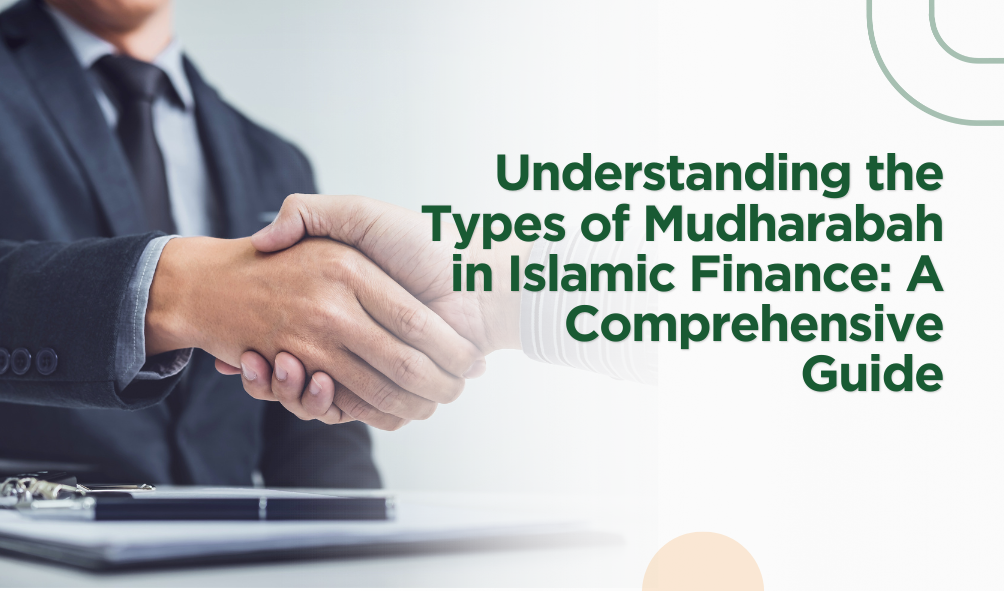Types of Mudharabah in Islamic Finance
Mudharabah is a pivotal concept in Islamic finance, representing a distinctive partnership structure. In this arrangement, one party, known as the shahibul maal, provides the capital, while the other party, referred to as the mudharib, contributes their expertise and effort to manage the business. The profits generated from this partnership are shared according to a predetermined ratio. Meanwhile, any losses are borne solely by the capital provider—unless they result from the mudharib‘s negligence or misconduct. Thus, this equitable distribution of risks and rewards makes Mudharabah a central pillar of the Islamic economic system.
The Importance of Understanding Mudharabah Types
Understanding the various types of Mudharabah is essential for making well-informed financial decisions. Each type possesses its own set of characteristics, risks, and benefits. Therefore, by comprehending these differences, both capital providers and business managers can select the most appropriate partnership model that aligns with their specific business goals.
Also Read:How Does Bad Cashflow Influence Profit Sharing in Mudharabah?
Types of Mudharabah Based on Business Restrictions
1. Mudharabah Mutlaqah: Complete Business Freedom
Mudharabah Mutlaqah grants the mudharib full autonomy in managing the business, without any restrictions from the shahibul maal. As a result, this type of Mudharabah offers significant flexibility, allowing the mudharib to independently choose the type of business, strategy, and make key decisions.
Characteristics of Mudharabah Mutlaqah:
- Flexibility: The mudharib enjoys total control over business operations.
- Increased Risk: The lack of restrictions can potentially result in higher risk.
- Trust: A high degree of trust is essential from the shahibul maal.
2. Mudharabah Muqayyadah: Restricted Business Management
On the other hand, Mudharabah Muqayyadah involves specific restrictions set by the shahibul maal. These restrictions could include the type of business, geographic location, or particular strategies that must be followed. Consequently, this structure offers a different set of benefits and risks.
Characteristics of Mudharabah Muqayyadah:
- Defined Boundaries: The mudharib must operate within the limits specified by the shahibul maal.
- Reduced Risk: These restrictions generally lower the risk involved.
- Closer Supervision: The capital provider exercises more oversight over business operations.
Types of Mudharabah Based on Time Periods
1. Mudharabah Muaqqatah: Time-Limited Partnership
Mudharabah Muaqqatah is a partnership with a specific duration, agreed upon by both parties. Once this time period ends, the partnership can either be renewed or dissolved. Thus, this type of Mudharabah offers a clear timeframe for both parties.
Characteristics of Mudharabah Muaqqatah:
- Set Duration: The partnership’s time frame is clearly defined from the beginning.
- Clarity: Both parties have a clear understanding of the partnership’s duration.
- Performance Evaluation: The business’s performance can be reviewed once the period concludes.
2. Mudharabah Muabbadah: Open-Ended Partnership
Mudharabah Muabbadah, by contrast, has no set time limit. Consequently, this type of Mudharabah continues indefinitely until one party decides to end the partnership or the business ceases to be profitable.
Characteristics of Mudharabah Muabbadah:
- Time Flexibility: There are no strict time constraints.
- Long-Term Focus: This model is ideal for businesses with long-term objectives.
- Potential Risk: The absence of a time limit can increase risk if the business underperforms.
Mudharabah Musytarakah: A Blended Approach
Mudharabah Musytarakah is a hybrid model that incorporates elements of both Mudharabah and Musyarakah. In this structure, both the shahibul maal and the mudharib contribute capital. As a result, both parties share equal rights in managing the business, with profits and risks distributed according to their respective capital contributions.
Characteristics of Mudharabah Musytarakah:
- Shared Investment: Both parties invest in the business.
- Collaborative Management: Business decisions are made jointly.
- Shared Risks and Rewards: Profits and risks are divided based on capital contribution.
Practical Considerations: Selecting the Appropriate Mudharabah Type
When choosing the right type of Mudharabah, it is crucial to consider the nature and objectives of the business. Thus, different types of Mudharabah are suited for different business contexts:
- Mudharabah Mutlaqah: This type is ideal for ventures that require innovative thinking and swift decision-making.
- Mudharabah Muqayyadah: Best suited for projects that need to adhere to specific guidelines or conditions.
- Mudharabah Muaqqatah: Perfect for projects with a well-defined time frame.
- Mudharabah Muabbadah: Suitable for long-term investments without a fixed duration.
- Mudharabah Musytarakah: Effective for businesses that require shared capital and joint management efforts.
Conclusion
In conclusion, a thorough understanding of the different Mudharabah types is vital for both capital providers and business managers within the Islamic finance framework. Each type presents distinct advantages and should be carefully chosen, considering the specific needs, objectives, and conditions of the business. By selecting the right Mudharabah model, both parties can create a successful partnership that aligns with Islamic financial principles.
Also Read:Profits Distribution in Mudharabah & Musyarakah: Permissible with High Cash Reserves?

References
- Al-Suwailem, S. (2006). Islamic Finance in the Global Economy. Edinburgh University Press.
- El-Gamal, M. A. (2006). Islamic Finance: Law, Economics, and Practice. Cambridge University Press.
- Usmani, M. T. (2002). An Introduction to Islamic Finance. Kluwer Law International.
- Vogel, F. E., & Hayes, S. L. (1998). Islamic Law and Finance: Religion, Risk, and Return. Brill.







